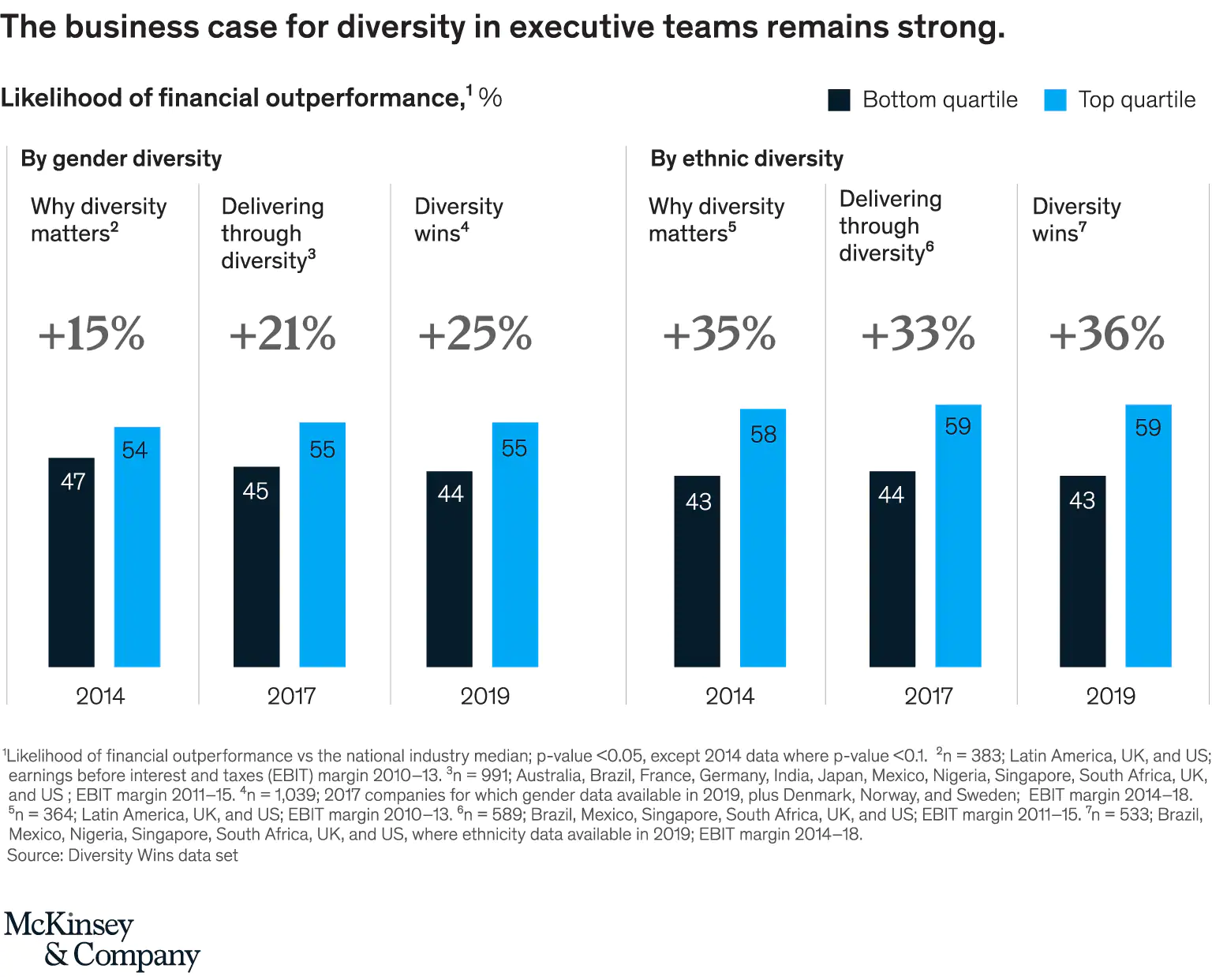With the ever growing automation of administrative roles, many fear that soon their jobs will be handed over to AI. According to sources, HR is particularly vulnerable to being replaced by software and smart tech, leaving many to question, ‘ will human resources survive in the future?’.
Despite the increasing technological changes many sectors are experiencing, we’re confident that HR departments are here to stay. Because robots might be efficient, but they just aren’t human (resources).
From the welcoming of new hires to the goodbyes of others, HR professionals are responsible for overseeing the entire staffing lifecycle. They are involved with training, overseeing payroll, negotiating employee benefits, and a vast array of other essential tasks that determine employee performance and job satisfaction.
So let’s take a deeper look into the key reasons why HR teams are crucial for business, and therefore here to stay!
→ FREE DOWNLOAD: RECRUITMENT SECRETS E-BOOK!
HR is adaptable to AI
Whilst technology and smart software threatens to take over many other admin roles, HR doesn't need to worry. Human resources are not only adaptable to new tech, but it is greatly complemented by it.
Currently, HR professionals are spending nearly 75% of their time on administrative duties, such as CV screening or maintaining paperwork. Letting tech take over some of these tasks leaves more time for managing employee relations and boosting the employee experience.
HR teams can delegate some of their workload to:
- Applicant tracking systems - Around 52% of hiring professionals state the resume screening process as the lengthiest task, so AI that can assess and shortlist suitable applicants free up a lot of previous time.
- Human resources management systems - Having an online platform to let employees log their absences, holidays, and answer any human resources-related questions they might have will save countless hours.
Not to mention, using AI to process huge amounts of data incurred by the hiring process doesn't just optimise the hiring process, but it can also reduce unconscious bias. For instance, companies using blind hiring software end up bringing up to 50% more female talent into interviews than those that don't!
By giving over burdensome admin tasks to HR software and systems, the people of the HR departments are able to spend more time where it matters most.

HR keep business compliant
One of the main roles of HR departments is making sure an organisation is compliant with employment laws whilst hiring, firing, and managing employees. The legalities of the workplace are constantly changing, so having a HR professional onboard to keep employers safe from serious legal trouble is truly critical to a company's success and longevity.
When managing any employee relation issues, HR teams consult employment laws to prevent misconducts or injustices that could result in claims.
They are required to know about:
- Workplace discrimination - HR professionals to keep employers compliant with various equality laws that prevent people from being discriminated against based on their identity, disability, age, and more.
- Wage and hours - There are fair working standards that every company must abide by and it's down to HR to protect staff from unlawful conditions and keep employers from breaking these regulations.
- Employee benefits - Every employee should have access to certain mandatory benefits, and HR plays a pivotal role in ensuring their benefits are protected.
- Workplace safety - To prevent injuries and illnesses from occurring, HR departments make sure employers abide by certain health and safety laws.
Legal trouble can be fatal for businesses, resulting in poor staff retention, low employee performance, and a bad reputation that'll make attracting top candidates an extreme difficulty. Not to mention, legal trouble can be incredibly costly, with the average cost of managing an employee claim coming with an average price tag or $125,000 in legal fees.
Thus, alongside keep your employer brand looking squeaky clean, HR's legal know-how and capacity to handle arising complains and conflicts can be an irreplaceable asset to a company's financial success.
HR helps you hire smarter
A major role of HR departments is to understand an organisation's hiring needs and cater to them through their candidate selection process. But it's not as simple as them throwing a job ad online and waiting for the perfect candidate to come along.
HR are in charge of coordinating and overseeing the entire recruiting process, from filtering through the applications, to helping your new hire fill out the necessary paperwork on their first day.
The most important thing that HR can contribute to the hiring process is efficiency. By conducting preliminary phone interviews or implementing assessments, HR can help massively narrow down the candidates and get the selection process underway quickly. Considering that most top candidates are only on the market for 10 days, speed and efficacy are key!
Aside from saving time, better decision making when hiring saves a lot of money. It's reported that around a half of new hires leave the role in the first 4 months, and replacing these short-terms hires can cost around $15,000 per employee.
Simply by helping new starters settle in properly with an effective onboarding process and ensuring they don't cut and run in the first year, human resources can drastically minimise unnecessary expenditures and ensure more successful hires.
HR drives the push for diversity
Diversity, equity, and inclusion (DEI) have become some of the most significant talking points in the recruiting and business world. Around 85% of employers recently reported that workplace diversity is their biggest priority. And, HR plays a pivotal role in this discussion, providing the DEI training and support needed to make positive changes to workplace culture.
By training hiring staff on unconscious bias and implementing more inclusive recruiting practices - such as writing an inclusive job ad and standardising the interview process -, human resources take an active role in creating a more diverse and welcoming company culture.
But, having dedicated HR professionals to manage DEI initiatives is more than simply a nice-to-have for businesses and employees. In fact, studies have shown that companies with greater gender and racial diversity financially outperform less diverse businesses by 25% and 36%, respectively.

Not to mention, roughly 70% of jobseekers consider the diversity of a company a deciding factor when applying for a role or accepting a job offer. Thus, the role HR plays in talent, including DEI initiatives in talent management and learning development, is crucial to the business' bottom line.
HR cares about the people
Such as the name suggests, human resources is responsible for managing all matters relating to the people of a business. From helping coordinate the hiring process to maintaining working relationships between staff, HR professionals are vital to keeping employee wellbeing, performance, and satisfaction optimal.
One such way in which HR departments advocate for employees and create a more positive work environment is through overseeing employee benefits packages.
Certain benefits that can ensure better employee wellness are:
- Flexible working - For many employees struggling with mental health, remote working and flexitime practices can help create a better work life balance and prevent burnout.
- Wellness initiatives- Many workplaces are implementing direct programmes and schemes to help combat low engagement and mental health, such as meditation breaks, days off for volunteering, mental health days off.
- Private healthcare - Many HR leaders are promoting private healthcare in their employee perks packages, a bonus which over 75% of employees claimed granted them significant peace of mind.
- Generous training opportunities - Nearly 40% of new employees report leaving their job in the first year due to poor training opportunities, so providing upskilling is crucial to bettering employee satisfaction and retention.
Employee performance and mental wellness are intrinsically linked. Considering that burnout caused nearly half of employee turnover last year, a team dedicated to managing mental health concerns at work can have a demonstrable impact on employee engagement and performance.

Final thoughts...
When you are running a substantial business with dozens of employees, having a dedicated HR professional to guide your staff and manage the employee experience is not simply a luxury; it's a must.
Keeping your company compliant and your employees engaged is a necessary skill set that will continue to be important for your business. Even way after the robots have taken over.






